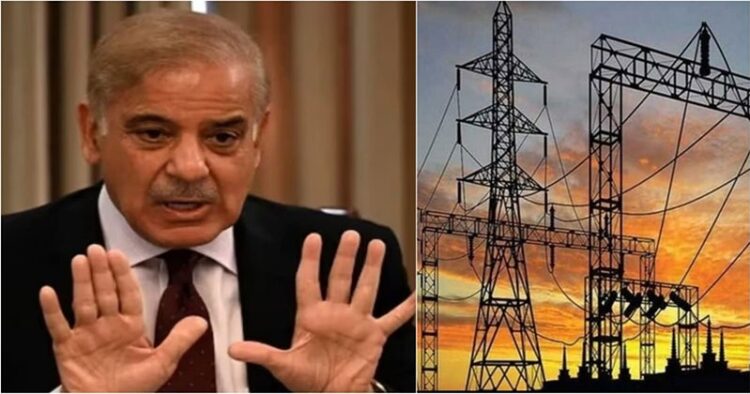Due to the problem with the transmission lines, Pakistan had a serious power outage that left the country’s major cities without electricity.
“There are reports of multiple outages from different parts of the city. We are investigating the issue and will keep this space posted,” said Imran Rana, Spokesperson, K-Electric, in a Twitter post.
There are reports of multiple outages from different parts of the city. We are investigating the issue and will keep this space posted.
— Imran Rana, Spokesperson, K-Electric (@imranrana21) January 23, 2023
Confirming the development, Pakistan’s Geo News reported that several areas in Karachi and Lahore were without electricity.
“#BREAKING: Countrywide power break down since 7:30am in #Pakistan,” Pakistani journalist Asad Ali Toor tweeted.
According to Quetta Electric Supply Company (QESCO), the two transmission lines from Guddu to Quetta tripped. The company added that 22 districts of Balochistan, including Quetta, are without power, Geo News reported.
Pakistan unveiled a new energy conservation strategy this month as its fragile economy continues to struggle with multiple challenges. The country’s foreign exchange reserves have dwindled to alarmingly low levels.
Pakistan also experienced a significant power outage earlier in October last year that deprived large swathes of the country, including provincial capitals Karachi and Lahore, of electricity, for more than 12 hours.
Earlier on January 21, former Pakistan Senator Mustafa Nawaz Khokhar said that Pakistan has become “politically and morally bankrupt”. “We have become politically and morally bankrupt. Even today, people are not being told the truth, which the country needs,” Khokhar said while addressing the second session of the national dialogue in Quetta.
During the conference, the former Pakistan People’s Party (PPP) leader said that communication between Pakistan’s people and political parties is broken. He said there is a need to address people’s issues rather than being engaged in irrelevant political discourses such as the Panama Papers and the Toshakhana case, the paper said.
“There were discussions on (Panama papers) and Toshakhana (case), but where were the issues of people? The situation has gotten to a point where if one doesn’t leave the country, they are going to the mountains,” he said, as quoted by The News International Newspaper.He said that democracy was buried when the dictator violated the country’s Constitution. “Courts have been given the responsibility of human rights; they, too, are silent and not paying attention to the issues. The society is disintegrating,” Khokhar said.
Pakistan is also facing its worst-ever flour crisis, with parts of the country reporting a shortage of wheat and stampedes reported from several areas in Khyber Pakhtunkhwa, Sindh, and Balochistan provinces. Prices of wheat and flour have skyrocketed amid the ongoing crisis in Pakistan.
Flour in Karachi is being sold from Rs 140 per kilogram to Rs 160 per kilogram. In Islamabad and Peshawar, a 10 kg bag of flour is being sold at Rs 1,500 per kilogram, while a 20-kilogram bag of flour is being sold at Rs 2,800. Mill owners in Punjab province have increased the price of flour to Rs 160 per kilogram.
Similarly, Khyber Pakhtunkhwa has been facing the worst-ever flour crisis as a bag of 20-kilogram flour is being sold for Rs 3100 after the government failed to control the price of the stable.
Such is the extent of the crisis that the government auctioned a Pakistani embassy property in the US a few days ago. The government is even resorting to drastic measures like ordering shopping malls, restaurants, wedding halls and markets to shut down early, hoping that it would save the nation around $273 million or 62 billion Pakistani rupees towards energy imports.
Among other moves, all government departments in the country have been asked to reduce electricity consumption by 30 per cent. While Pakistan’s economy has been out of shape consistently for the past few years, the cash-strapped nation’s financial problems were further aggravated in 2022.


















Comments